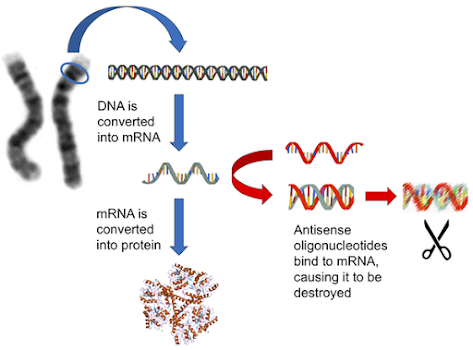Emergence of Covid-19 and High Prevalence of Neurological Diseases to Boost Demand for Antisense Oligonucleotides
Antisense
oligonucleotides are short, synthetic, single-stranded oligodeoxynucleotides
that hybridize to a target RNA in a sequence-specific manner. These synthetic
DNA oligomers find application in antisense therapy for the treatment of cancer,
virus infections, and inflammatory diseases. A major benefit of antisense
oligonucleotides-mediated therapies is their ability to target the source of
the pathogenesis, which increases the outcome of the treatment. Such benefits
have prompted approval of these therapies in the U.S. for the treatment of
diseases such as Duchenne muscular dystrophy and spinal muscular atrophy. Other
approved conditions include, Batten disease, cytomegalovirus retinitis,
familial chylomicronaemia syndrome, familial hypercholesterolemia, and
hereditary transthyretin-mediated amyloidosis.
Recently,
emergence of Covid-19 has led to R&D in designing antisense oligonucleotide
gapmers to cleave the RNA and disrupt virus replication. This can be attributed
to highly conservative nature of a part of the SARS-CoV-2 viral RNA. The novel
approach can allow use of s2m or stem-loop 2 motif (s2m), a highly conserved
sequence in the Sarbecovirus genus, as a potential target for developing
antivirals.
Antisense
oligonucleotides can be used to inhibit gene expression, modulate splicing
of a precursor messenger RNA, or inactivate microRNAs. It has also been
observed that targeted cell- and tissue- specific delivery of these
oligonucleotides help in treatment of various diseases with high unmet medical
need. In this regard, in January 2020, Aro Biotherapeutics, a company focused
on R&D of a new generation of protein biologics, collaborated with Ionis
Pharmaceuticals, Inc., a developer of RNA-targeted therapeutic solutions, to
develop targeted cell- and tissue- specific delivery of antisense
oligonucleotides.
Antisense
oligonucleotides have shown potential in the treatment of Prion disease, a type
of proteopathy, or disease of structurally abnormal proteins. This
neurodegenerative disease can adversely impact the nervous system. Use of
antisense oligonucleotides has been found to prolong the lives of mice in lab
experiments.




Comments
Post a Comment